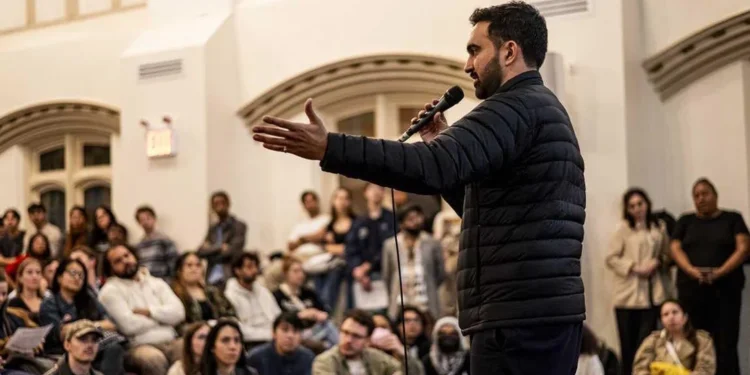On Friday’s broadcast of CNN NewsNight, New York City mayoral candidate Assemblyman Zohran Mamdani (D) doubled down on his push for government-run grocery stores, despite repeated evidence that the idea struggles to survive in practice. When pressed on the failures of similar projects, Mamdani insisted that “we have to prove not only the efficacy, but the excellence of this idea, because, for every one example that you can point to, there is another of another municipality today considering opening a city-run grocery store.”
Host Abby Phillip raised the question many New Yorkers are already asking: why not work with the private sector, which has a proven track record of providing food efficiently and affordably, instead of pushing taxpayers to foot the bill for a new government bureaucracy? Phillip asked plainly, “Explain how this really would work, and why is the government a better solution for a lack of grocery stores, food deserts than just working with the private sector to have them do what they know how to do, which is, run grocery stores? What’s your answer to that?”
Mamdani’s response revealed the scale of his plan. “There are more than a thousand grocery stores in New York City. I’m proposing creating five additional ones, one in each borough of New York City, that the city would run and that would guarantee cheaper groceries, not free food, but cheaper groceries. And part of that is because food is a necessity for New Yorkers. It’s a necessity for everyone. And yet it’s something that people are being priced out of. And we can see the promise and the possibility of a public option. And we’ve seen, in studies that have been done about the applicability of this in an urban setting like Chicago, that this is something we could actually deliver right here in New York City.”
The sticking point, however, is reality. Attempts at city-run grocery stores elsewhere, such as Kansas City, have left a trail of failure: stores riddled with crime, shelves empty from supply issues, and taxpayers left holding the bag. Phillip pointed to this fact directly: “But there was another example in Kansas City, where they had a government-run grocery store, and it’s been there for years, but it’s on the verge of closing because it doesn’t work. They’ve been riddled with crime. They’ve dealt with a lack of inventory. There are other examples where it just hasn’t worked, because, frankly, the government is not that good at being in the business of being in grocery stores. So what do you say to that example?”
Mamdani brushed aside those failures. “I say to that example, as well as the examples of our own failure as a city government right here in New York City, that we have to prove not only the efficacy, but the excellence of this idea, because, for every one example that you can point to, there is another of another municipality today considering opening a city-run grocery store. But, to me, the most important thing is the outcome. This is something I believe will work. We will bring the best and the brightest to deliver it, and it will be five stores at the cost of $60 million, which is less than half [what] the city is already spending on subsidizing corporate supermarkets.”
What Mamdani frames as a bargain is, in fact, a taxpayer-funded gamble with $60 million on the line. It is one more example of the belief that government—already burdened with mismanagement, bureaucracy, and inefficiency—can step into the role of private enterprise and somehow outperform it. History shows otherwise. Whenever government takes over what the private sector does best, the result is higher costs, less accountability, and an inevitable bill handed back to hardworking taxpayers.
Food deserts are a genuine challenge, but history demonstrates that innovation and competition in the private sector—not new bureaucracies—bring real, lasting solutions. When New York already has over a thousand grocery stores operating under private ownership, the creation of five government-run stores is not a solution rooted in common sense but in ideology. For New Yorkers, the question remains: do they want cheaper groceries through competition and private enterprise, or costly experiments that grow government while offering no guarantee of success?





















I still don’t see how a government run store ends up being cheaper? And it’s really not explained either. They can sell cheaper but where are they getting cheaper goods? Americans shop at Dollar Tree and Hyvee for cheap goods but they’re just skimming by,some closed.if government run,that means taxpayers are funding it and not getting any deals in the end.